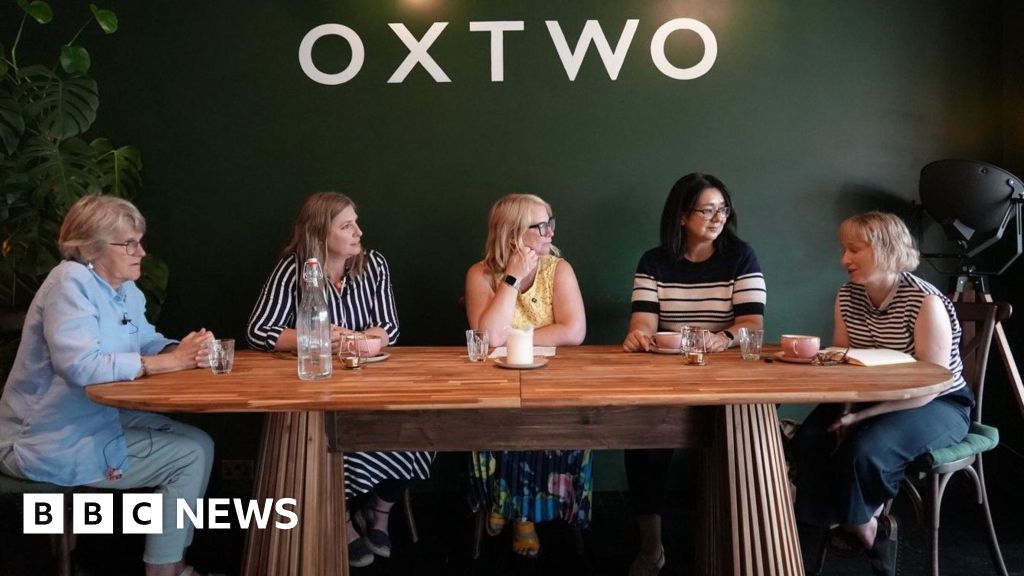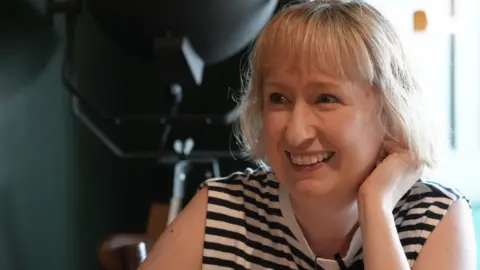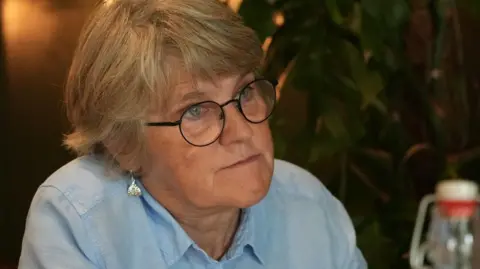Oxfordshire charity staff face burnout amid ‘triple crisis’

BBC News, Oxford
 BBC
BBCCharity leaders in Oxfordshire have said staff in the sector are struggling with burnout caused by a “triple crisis”.
In a roundtable discussion for BBC Oxford, they said demand for services had “gone up massively”, raising money had become more difficult and costs had increased.
There are about 4,000 registered charities in the county.
Catherine Flutsch, CEO of Ark-T, said staff “from junior right up to the CEOs are absolutely exhausted… the need is rising, the funds are contracting and we’re trying to hold our communities together”.
Kate Parrinder is deputy CEO of Oxfordshire Community Foundation which distributes about £2m in grants every year.
“Charities are facing a perfect storm, a triple crisis. …they’re facing a real sort of crunch moment,” she said.
“Charities… are filling gaps that, in the past, the government would have filled, and they’re dealing with things like mental health issues, homelessness, poverty – they’re helping people who might be incredibly vulnerable or not even be with us any more if those charities didn’t support them.”

Laura Price is CEO of Oxfordshire Community & Voluntary Action (OCVA), which supports the county’s voluntary and community sector.
She said: “During Covid a lot of organisations were running on adrenaline and then there wasn’t really a natural break or a chance to rest and reset – and charities went straight into a cost of living crisis and a lot of big financial challenges.”
Tess McCay is executive director of Charity Mentors Oxfordshire, which provides pro bono mentoring for charity leaders in the county.
She said her mentors had been hearing about leaders having to deal with “a reduction in staff, low salaries and an inability to cope with the cost of living”.

The Ark-T charity is based in Cowley, one of the most socially deprived parts of the county, and uses art and creativity to help tackle a wide range of inequalities.
CEO Catherine Flutsch said “I think a lot of charities will go under. Oxfordshire has a huge numbers of charities and I don’t think any charity is safe.
“…then those vulnerable people who are relying on those charities may not have anywhere to go to get help.”
She added there was a “constant pressure on me and my team and that really does grind us all down and so we have to be extremely careful about looking after ourselves otherwise we’re not going to be here”.
In April, Oxfam put 265 of its 2,100 staff at risk of redundancy, citing the state of the economy and increased National Insurance contributions.

Ms Flutsch also said they were finding it “extremely difficult” to recruit trustees.
“Where we are [east Oxford], they’re some of the most deprived areas in the whole of the UK.
“People need to work, they need to earn their living, they might not have four to five hours every couple of months to give because they need to feed their families.”
Ms Price said there was a crisis in recruiting volunteers across the board and highlighted a particularly reluctance for people to take on treasurer positions.
Kate Parrinder said “Charities should be funded and not run by volunteers…
“…the people working for charities deserve to be remunerated fairly and equitably… so that it attracts the right people to those jobs… because we can’t afford to have charities run only by volunteers when they are dealing with life and death situations.”

Ark-T has an annual budget of about £350,000 which it needs to raise every year.
Ms Flutsch says its average grant is about £10,000, with an application success rate of about 5%.
“In the corporate world you would never put in that level of energy and time for a 5% success rate,” she said.
Ms Parrinder made a “cry for help from people who are feeling philanthropic”.
“I think it should just become part of our culture that philanthropy is a thing that anybody with means, does,” she commented.
Ms Price added “We have to stop that rollercoaster for communities of getting and then losing support… if we really want to tackle those long-term inequalities that exist in our county then there’s got to be some more sustainability about the social infrastructure that charities and community groups bring.”
At the same time as the discussion was happening, the government published its Civil Society Covenant – describing it as “a new chapter in the relationship between this government and the remarkable civil society organisations that form the backbone of our communities”.
Culture secretary Lisa Nandy said: “It has been a difficult decade for many civil society organisations who have been asked to do more with less.
“Less funding, less recognition and less power. Funding has reduced as need has soared and the right to speak up on behalf of those most in need has routinely been challenged.”
[title_words_as_hashtags





